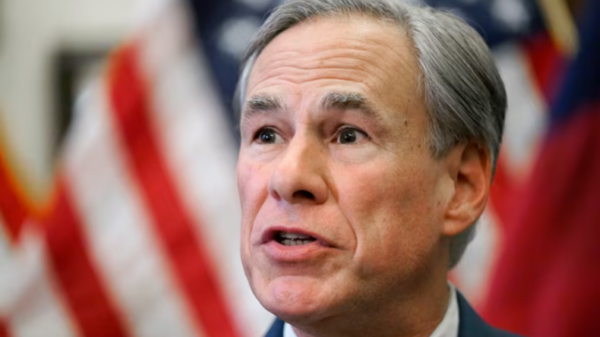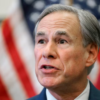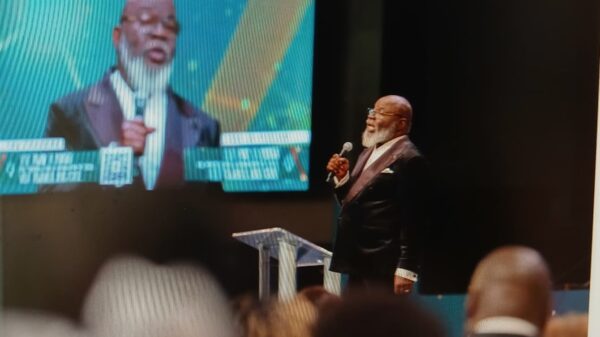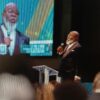By Maggie Prosser
Dallas Morning News
Reprinted – by Texas Metro News
Texas House committee members lose Robert Roberson III court fight on death penalty delay

The Texas Supreme Court ruled Friday the state Legislature does not have the power to stall an execution, ending a constitutional crisis that erupted after lawmakers subpoenaed Robert Roberson III to testify before a committee four days after he was scheduled to be put to death.
In an unprecedented exercise of legislative power, a bipartisan coalition of lawmakers subpoenaed Roberson — an East Texas man convicted in 2003 of killing his 2-year-old daughter — to testify before the House Committee on Criminal Jurisprudence about a state law that allows people convicted using disputed scientific theories to have their cases reexamined. That subpoena spurred a chaotic legal battle that ended in a stay Oct. 17, the night of his scheduled execution by lethal injection in Huntsville.
The novel legal maneuver triggered a separation of powers issue for the state’s highest civil court: Does the legislative branch’s investigatory power trump the executive branch’s obligation to carry out a death warrant issued by the judiciary?
“We have concluded that the committee could not overcome the other branches’ authority,” Justice Evan Young wrote in the 31-page opinion. “Legislative investigatory power, even at its maximum, is insufficient to forestall a long-scheduled execution under the circumstances presented here.”
Young said the dispute before the high court “has nothing to do with Roberson’s guilt or innocence or with the propriety of his sentence.” He affirmed the Legislature has the authority to investigate and subpoena witnesses but said lawmakers could have interviewed Roberson “long before the death warrant was issued — or even afterwards, but before the execution.”
The justice held that the “Legislature’s investigative authority must be accommodated,” and “other branches may not prevent the legislature from hearing from those whom it reasonably deems necessary when formulating our State’s public policy.”
State Reps. Joe Moody, D-El Paso, and Jeff Leach, R-Allen — lawyers who had asked the Supreme Court to determine if the subpoena must be obeyed even if it delayed an execution — said the committee will proceed with plans to interview Roberson.

“In holding that a legislative subpoena cannot delay an execution — never our specific intention — the Supreme Court also rightfully agreed that our legislative subpoena and this suit were valid,” the lawmakers said in a written statement. “Further, the Supreme Court strongly reinforced our belief that our Committee can indeed obtain Mr. Roberson’s testimony and made clear that it expects the Executive Branch of government to accommodate us in doing so.”
State Rep. Brian Harrison, a Midlothian Republican and member of the committee, said the ruling should clear the way for the committee to hear from the death row inmate.
“My expectation is that we will now receive Roberson’s testimony, and it will be clear in time who was on the right side of history and who championed the execution of a potentially innocent person,” Harrison said.
Roberson was initially set to die by lethal injection in Huntsville in 2016, but his execution was delayed while the courts explored if his conviction was based on faulty science.
Anderson County prosecutors alleged at Roberson’s 2003 guilt-innocence trial that Nikki Curtis’ death was consistent with shaken baby syndrome, a medical determination that abuse has caused serious or fatal head trauma. Roberson has maintained his innocence. A second execution date was scheduled for Oct. 17.
Attorneys, advocates, the lead detective whose testimony helped convict Roberson and a bipartisan group of legislators say shaken baby syndrome has broadly come under scrutiny by scientists and doctors in the decades since Roberson was sentenced to death.
“The ancillary benefit to Mr. Roberson of staying his execution hopefully gives time for those with power to address a grave wrong to see what is apparent to anyone who gives the medical evidence fair consideration,” Roberson’s attorney Gretchen Sween said in a statement. “His daughter Nikki’s death was a tragedy not a crime; Robert is innocent. Given the overwhelming new evidence of innocence, we ask the State of Texas to refrain from setting a new execution date.”
Sween added: “No Texan wants an innocent man executed.”
The criminal jurisprudence committee convened on the eve of his execution last month to discuss whether the “junk science” law was aptly applied to Roberson’s case, and unanimously voted at the end of the daylong hearing to call the death row inmate to the Capitol to testify. The plan drew national attention but did not pan out after Attorney General Ken Paxton raised concerns.
What is next for Roberson is unclear. Roberson has nearly exhausted his pleas to the Court of Criminal Appeals, and the panel of justices has already denied him relief under the junk science law. The state’s parole board has the power to reevaluate whether to recommend clemency, which would give way for Gov. Greg Abbott to commute Roberson’s sentence.
Another execution date can be scheduled no sooner than early 2025.
Staff writer Nolan D. McCaskill contributed to this report.
| This story, originally published in The Dallas Morning News, is reprinted as part of a collaborative partnership between The Dallas Morning News and Texas Metro News. The partnership seeks to boost coverage of Dallas’ communities of color, particularly in southern Dallas. |









You must be logged in to post a comment Login